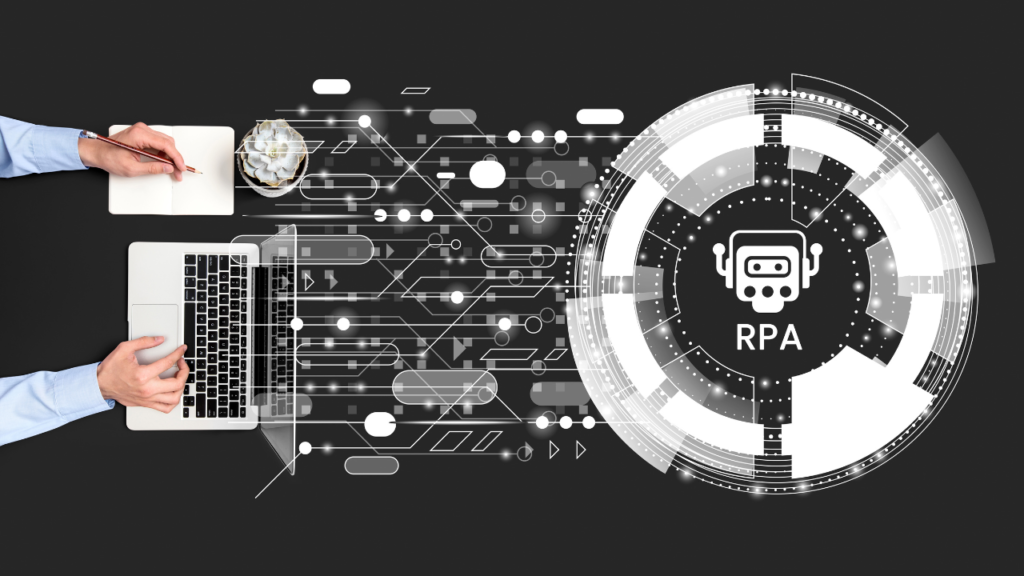Artificial Intelligence Testing Software| Tools, 7 Key Benefits of AI in Software Testing
What is AI?
AI is the emulation of human intelligence through machines programmed to execute tasks demanding advanced cognitive abilities. These tasks encompass data analysis, decision-making, learning, and adapting to new information. Unlike basic programming that confines computers to a set of tasks, AI systems exhibit a degree of autonomy in their operations.

Artificial Intelligence Testing Software
Artificial Intelligence Testing Software is the evolution of evaluating system functionality, performance, and reliability with AI assistance. It employs core techniques from traditional software testing, greatly enhanced by AI technology. In traditional software testing, a hybrid approach prevails—partly automated, partly manual. Automation tools handle repetitive test cases, freeing up testers for tasks demanding human reasoning like decision-making and planning.
With AI integration, these tools extend support to advanced human reasoning tasks. This elevates scalability, enabling testers to transition to more strategic responsibilities. They cease to be mere “testing tools” and transform into powerful Artificial Intelligence Testing Software.
10 Best Artificial Intelligence Testing Software/ Tools:
| Tool | Key Features | Pricing | Pros | Cons |
|---|---|---|---|---|
| Katalon Platform | Comprehensive test automation for web, mobile, API, desktop | Free & Paid Plans | Powerful AI features, codeless and scripting options, scalability | Complex for beginners, can be pricey |
| TestCraft by Perfecto | AI-powered test automation based on Selenium | Free Trial & Paid Plans | Easy to use, strong AI capabilities, robust reporting | Requires Perfecto account, limited test case management |
| Applitools | Visual AI for UI testing and application monitoring | Free Trial & Paid Plans | Excellent image-based testing, self-healing capabilities, advanced analytics | Expensive for large enterprise use, limited functional testing |
| Functionize | Scalable AI-powered end-to-end testing suite | Free Trial & Paid Plans | Strong performance testing, scriptless automation, global testing environment | Complex setup, limited free trial features |
| Mabl | No-code test automation with AI assistant | Free Trial & Paid Plans | Easy to use, codeless scripting, good for web apps | Not suitable for complex testing scenarios, limited mobile compatibility |
| AccelQ | AI-powered test automation platform with RPA | Free Trial & Paid Plans | Robust automation features, strong integrations, good analytics | Steep learning curve, high-end pricing |
| Testim by Tricentis | AI-driven codeless test automation for web apps | Free Trial & Paid Plans | User-friendly interface, strong AI assistance, good for beginners | Limited API testing capabilities, not ideal for complex workflows |
| Testsigma | Open-source and AI-powered test automation platform | Free & Paid Plans | Strong automation features, codeless and scripting options, affordable | Community support can be limited, complex for advanced users |
| Mabrisa | AI-powered performance and load testing tool | Free Trial & Paid Plans | Efficient load testing, real-time insights, easy customization | Can be expensive for large-scale testing, requires technical expertise |
| Netify | Continuous monitoring and AI-powered testing for web apps | Free Trial & Paid Plans | Comprehensive testing suite, automated issue detection, proactive alerts | Expensive for large teams, limited customization options |
7 Key Benefits of AI in Software Testing
Benefits of Artificial Intelligence Testing Software goes beyond simplifying the framework and lowering the additional costs associated with product testing.
Test automation systems that use AI and machine learning may significantly speed up the testing process. Artificial intelligence testing does not require the team’s continuous attention because the tests are generated and implemented separately. Programmable machines are always faster than humans while doing repetitive tasks.

Artificial Intelligence Testing Software go beyond framework simplification and a reduction in the extra expenses related to product testing.
1. Speeding up Timelines
Among the critical benefits of Artificial Intelligence Testing Software includes a swift yet detailed scan of log files, code in seconds, and discovering flaws in a lot less time than manual testers, who must manually go through thousands of lines of code. AI also produces more accurate results because it is not fatigued or prone to human errors. QA engineers can concentrate on testing new features or paying close attention to the software’s critical components by introducing AI into repetitive tests.
2. Improved Automation
A big portion of a QA’s responsibility is to make sure that new code does not make current working code unstable. The quantity of code that needs to be tested grows as more features are created and added, which may be too much for already overworked QA engineers to handle.
On the other side, AI bots will be able to change as the programming does.
- They are adaptable and can pick up on new roles.
- Benefits of AI in software testing include determining whether a modification to the code is a new feature or a flaw that resulted from the change.
- By utilizing a developed platform, automated testing may also be enhanced.
- Additionally catching up and evolving quickly with more sophisticated change detection is AI in visual testing.
3. Clarity about Client Needs
Being able to comprehend what the client wants is crucial when it comes to software testing. It is feasible to leverage the benefits of Artificial Intelligence Testing Software to compare related websites and apps to find out what factors influence success among the target audience.
So that developers and testers are aware of the major selling points of a particular software, AI can assist in the analysis of competing goods to find these aspects.
- AI can be used by testers to find frequent code errors that might impair a software system’s seamless operation.
- They can develop test cases to make sure the product does not malfunction when reaching those goals by understanding the client’s needs.
Chat GPT has swept the globe as one of the 2023 trends in automated testing. In terms of artificial intelligence for software testing, benefits of Artificial Intelligence Testing Software carries the ability to produce text in a variety of formats, including structured data, code snippets, and annotations, and this text can be used to automate processes like code development and testing.
Benefits of Artificial Intelligence Testing Software for test automation include:
- Code generation is a great approach for novices to learn the fundamental syntax and structure of a programming language since it can produce code snippets in response to natural language questions.
- The next stages can be aided by using code completion to finish partially written code.
- Code explanation can be used to clarify the intent and operation of particular lines of code, assisting both novice programmers and seasoned pros.
- Artificial Intelligence Testing Software can help beginners learn how to debug and troubleshoot their code by spotting and explaining code issues.
- For newcomers who want to construct a project, it can offer guidance and suggestions on the best practices, libraries, and project structure.

4. Better Regression Tests
More fast than is achievable with progressive and rapid deployment, regression testing is required. Artificial intelligence can be used to run challenging regression testing. Organizations can utilize machine learning as a tool to create test scripts. For instance, an AI-based process can look for any overlaps in a User Interface update. AI could be used to validate modifications that would be difficult to manually test in the absence of AI.
5. Conducting Visual Tests
The AI-based technology can evaluate diverse user interface contents and offers visual web page validation. Given that the design must be judged by people, these tests are difficult to validate. Several tasks that would be difficult for a single human to identify can be carried out by automated testing, such as collecting screenshots and evaluating load times. In order to build frameworks, update the Document Object Model, and summarize dangers, benefits of AI in software testing includes eliminating the need for manual labor.
6. Cost and Money Efficient
Manual testing requires tedious repetitive work every time the source code is altered. It requires both time and money. Instead, a testing system powered by AI may carry out these activities on a regular basis and without costing extra. Software testing proceeds more swiftly, which promotes cost reduction.
7. Enhanced Test Coverage
With endless benefits of Artificial Intelligence Testing Software, the complexity and scope of tests can be increased, enhancing the product’s overall quality. As a result, the software’s quality is enhanced. Artificial Intelligence Testing Software can go deeper into the memory, file data, internal programme statistics, and data tables to ascertain the software’s optimum performance. AI tests might be able to run more tests concurrently and cover more ground than manual tests can.
Tasks that can help in Artificial Intelligence Testing Software
Most of the above tasks have a factor of repetition and redundancy in them. That is why the QA industry has a lot of scope of automation. Also, there are tasks that, if learnt once, can be quickly done by AI. Some such tasks are:
- Creation of test case for one field: The AI software needs to recognize what test cases need to be run for one field type and automate them for execution.
- Execution of test case according to changes: Once the AI software knows what areas have changed in the code, it can do risk analysis and decide what test cases should be executed to ensure nothing is broken automatically before the release.
- Test Planning: Planning what test cases should be created for a new feature and how the test cases should be executed.
- Automation of the same type of workflows: When the tester automates one workflow, the AI software can learn to automate all similar flows saving a lot of crucial time.
- Maintenance of test cases when there are changes in the code: The test cases that are broken by a minute change in the code, like just renaming a component, can be easily rectified by an AI software.
- UI testing: According to the UI components, AI-based software can easily generate test cases that test all the UI workflows.
- Performance and Load testing: Generation of load for performance and load testing
- Testing before releases: AI-based software can decide what all test cases should be executed before what kind of releases according to the changes in the code and new features built.
- Create test plans automatically.

FAQs: Artificial Intelligence Testing Software
Why Do We Need Artificial Intelligence Testing Software Automation?
Incorporating AI into test automation is imperative because it can revolutionize testing processes. AI-driven automation enhances test coverage, accelerates execution, and identifies intricate patterns that human testers might overlook. By intelligently analyzing data and adapting to evolving software, AI empowers testing to be more comprehensive, efficient, and adaptive, ultimately leading to higher-quality software releases.
What are the Various Methods for AI-Based Software Test Automation?
The various methods for Artificial Intelligence Testing Software Automation are as follows:
- AI-driven regression suite automation reduces test cycle times by automating tests based on code changes. This method optimizes efficiency by selecting and executing appropriate test cases.
- Defect analysis and prediction use machine learning and natural language processing techniques to identify software defects early, ensuring quality and expediting time-to-market
- AI-powered self-healing automation addresses broken test automation scripts caused by changes in objects or properties, focusing on automatic remediation, minimizing manual intervention and accelerating the self-healing process.
What does AI Mean for QA Testers?
AI, like automation, minimizes manual repetitive work for QA testers by learning solutions to future problems. QA testers should continue their current tasks while learning AI-based test automation tools to improve efficiency. This can significantly increase the overall quality quotient of a product in less time if they effectively use AI tools. This approach helps QA teams learn from past problems and improve efficiency in the future.

